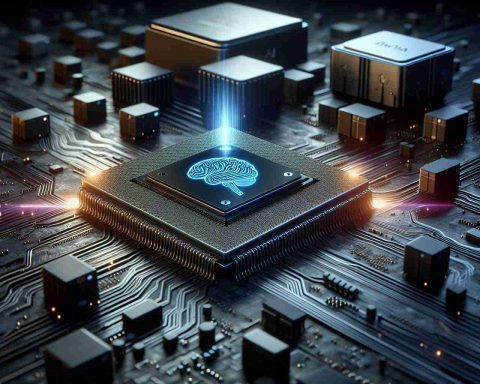In the ever-evolving landscape of artificial intelligence, a new player is gaining significant attention: Edge AI. But what is it, and why is it critical for the next generation of technological advancements? Simply put, Edge AI refers to the practice of running AI algorithms directly on devices like smartphones, IoT devices, or any other decentralized hardware, rather than relying on data centers or cloud computing.
The primary advantage of Edge AI is its ability to process data in real time, right where it is generated. This is crucial for applications that require instant decisions, such as autonomous vehicles, where any delay could mean the difference between a safe stop and an accident. By performing computations locally, Edge AI reduces latency, ensuring faster response times and enhanced user experiences.
Another significant benefit is privacy. With Edge AI, data does not need to be sent to the cloud for processing, meaning that sensitive information stays on the device. This local processing helps meet stringent data protection regulations and alleviates concerns over cybersecurity threats.
Moreover, bandwidth and energy savings are notable aspects of employing Edge AI. Since the need to transmit vast amounts of data to centralized servers is eliminated, the required network bandwidth is minimized, resulting in lower energy consumption. This efficiency is particularly vital for battery-operated devices.
As the demand for smart and interconnected systems grows, Edge AI is set to play a pivotal role in shaping the future of technology, paving the way for more intelligent, secure, and responsive systems.
How Edge AI is Revolutionizing Everyday Life: Surprising Impacts and Hidden Controversies
While Edge AI is celebrated for its real-time processing capabilities and enhanced privacy, what often goes unnoticed is its transformative impact on everyday life and broader societal implications. The deployment of AI at the edge is not only reshaping how we use our devices but also carries significant influence on various sectors and raises important questions about control and equity.
Unexpected Benefits
The integration of AI into edge devices has led to more efficient smart homes. Devices can communicate swiftly without needing cloud-based support, creating seamless experiences with smart stair lifts or refrigerators that optimize energy usage while maintaining user comfort. This technology is also revolutionizing healthcare, enabling wearable devices to monitor health metrics in real-time and alerting healthcare providers instantly, a vital step for the management of chronic diseases.
Global Implications and Controversies
On a larger scale, Edge AI promises to bridge the digital divide in areas with limited or unreliable internet access, which is a significant issue in developing countries. However, the access to Edge AI technology raises questions about equity and fairness. Will this innovation remain a privilege of tech-savvy and affluent urban areas, thereby increasing global inequalities?
Additionally, job displacement is a concern as automated systems become more self-reliant, potentially replacing human roles in monitoring and decision-making. Who controls these edge devices? The amplifying of autonomous decisions raises accountability issues during device malfunction or ethical decision-making processes.
For more on AI and its global ramifications, visit Nature.
The source of the article is from the blog karacasanime.com.ve







